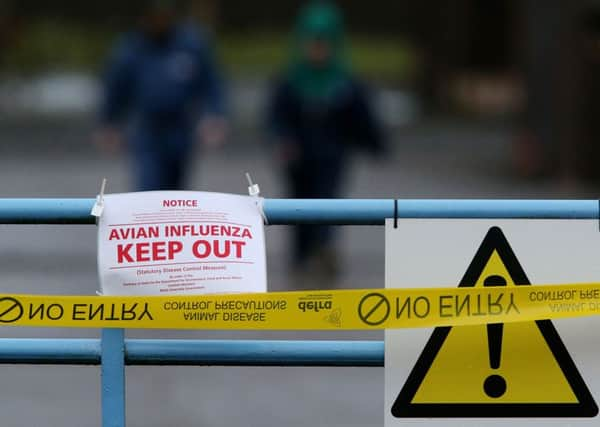Nine swans infected with avian flu


According to the Animal and Plant Health Agency, nine mute swans have tested positive for the H5N8 strain at Abbotsbury Swannery, the world’s only managed colony of nesting mute swans.
The attraction is closed to the public until March 18.
Two other confirmed cases of infected wild birds have also been detected this month, involving a wigeon in Devon and a teal in Conwy, Wales.
Advertisement
Hide AdAdvertisement
Hide AdThe new case came on the same day as a 3km Protection Zone around a poultry farm near Louth, East Lindsey was lifted. The zone was put in place on December 16 when a case of avian flu was confirmed in turkeys at the farm. A 10km Surveillance Zone remains in place though all the birds have been culled and a cleansing and disinfection operation has been carried out.
The zones stipulate a range of measures that restrict animal movement and impose strict biosecurity measures to limit the risk of the disease spreading.
Both a Protection Zone and Surveillance Zone remain in place around premises near Settle, North Yorkshire where a case of the same strain was confirmed in a small backyard flock of 17 chickens and ducks on Friday.
The Government’s chief veterinary officer Nigel Gibbens said the finding in a backyard flock showed how essential it is for all poultry owners, even those who keep just a few birds as pets, to do everything they can to keep them separate from wild birds.
Advertisement
Hide AdAdvertisement
Hide Ad“This means keeping birds in a suitable building where possible and taking precautions such as putting up netting, keeping food and water inside and disinfecting footwear and equipment after contact with birds,” Mr Gibbens said.
A Prevention Zone remains in place across Britain until the end of February 28 which compels poultry keepers to keep a high level of biosecurity and to keep species separate from wild birds.
Public Health England has said the risk to people from the virus is very low and the Food Standards Agency has made clear bird flu does not pose a food safety risk.